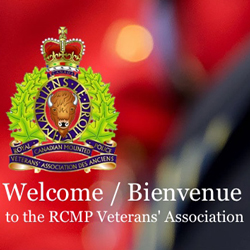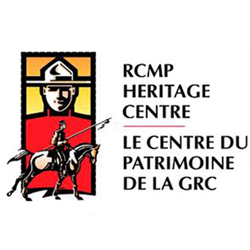Cpl. Thomas Raisbeck: Three-Month Break In Service His Most Regrettable Decision
For the RCMP Centennial in 1973, RCMP Veteran Thomas Grant Galloway Raisbeck provided an account of his time in the RCMP to the Edmonton Journal newspaper. Tom’s story is provided below for your reading pleasure.
Background Details: Tom was born on June 14, 1910 at Taber Alberta and joined the Force on December 8, 1934 at Edmonton. Upon completion of his training at “Depot”, he transferred to “F” Division until his discharged on June 15, 1946. Then on September 1946, he re-engaged on September 20, 1946 at Regina and went no serve in both “F” Division and “K” Division until his retirement in March 13, 1955. In retirement, Tom moved to Kelowna and joined the RCMP Veterans Association becoming a Life Members sometime thereafter. On January 10, 1002, Tom passed away at Kelowna, BC.
Article:
There were many interesting episodes during my three years as a liaison officer with the WPTB is Saskatoon.
A couple of cases I prosecuted were against people defended by one of the best criminal lawyers in the country. I met this man some years later while he was campaigning in the Peace River country before a federal election. His party won the election and he became Canada’s prime minister, John Diefenbaker.
From my WBTP job I was transferred back to office work at the subdivision.
The thing I regret most in my life is the three months I spent in civilian life after buying my discharge in 1946.
I didn’t lose any seniority, but the day I returned in my kit at Regina, the officer commanding the division offered to send me to take charge of Yellowknife in the Northwest Territories. “And I can assure you of rapid promotion to a sergeant,” he said. After turning the offer down, I re-engaged three months later. It took me three years from then to get corporal stripes.
LUCKY BREAKS
When I re-engaged, I was posted to North Battleford. While we were responsible for policing the small town, I spent most of my time in criminal investigations ended in court appearances.
I like to think of the smart Alec I arrested on morning after 6 a.m. while he was sleeping in a local laundry. In the same premises i found all the evidence I needed to convict him of the burglary of a city cafe.
Under his pillow he had a loaded pistol and in his pocket he had a letter telling what a sleepy bunch the RCMP were in North Battleford. It was very subtle… “Greetings X” it stated. It was intended for his brother in Vancouver and he had figured on posting it before he robbed the cafe that night. The letter also unveiled to me a couple of other robberies he was involved in. He finally pleaded guilty to five burglary charges.
I like to kid my wife about the time I used her and her lady companion for an identification parade at the detachment. I had arrested a woman on charges of forgery and uttering after a family allowance cheque had been cashed at a local hardware store. I already had a confession from her. You can imagine my embarrassment and that of my wife when the store clerk picked her out of the line of seven women.
SPECIAL CASE
While I was stationed at North Battleford I was assigned to investigate many interesting cases: burglaries, wheat thefts, cattle thefts and arsons. But one of the most interesting was at a neighbouring detachment.
It was during the transition period when a change of the NCO in charge of the detachment was taking place.
“Oh! you’re probably the new policeman,” suggested a local merchant when a man in an RCMP corporal’s uniform presented a $100 cheque to be cashed. “Yes. you’re right,” replied the man in uniform.
He left the local business place with $500 cash in his pocket after the storekeeper suggested the inadequacy of that mere $100. As it turned out, he wasn’t the new NCO. The signature of the cheque was that of one Pierre Flavelle, my friend from guard duty days at Depot. This time he faced an additional charge of impersonating a police officer.
Three years at Bengough, an international border detachment, followed North Battleford. Here was my first real introduction to customs work.
After a year at this dancing country I took a special course in preventive service (Customs-excise) at Vancouver., Many seizures and continuous patrols, including winter patrols by aircraft, cut the smuggling in this area to almost nil. The surveillance also cut cattle thefts to a minimum.
Some people of the area didn’t particularly like being checked too often, but it did the trick.
In 1952, I was transferred to Calgary where I took over the preventive service branch, the position I stayed in until my retirement, three years later.
During the summer of 1953 I was treated to another special customs-excise course, this time at Rockcliffe, Ont. I really enjoyed eastern Canada.
Ottawa and its surroundings were exceptionally nice but I was also glad to return to the West and Calgary, with the foothills of theRockies in view.
Those were action-packed years in Calgary with customs seizures being made every other day. At one time, we had about two dozen new-model cars under seizure, nice big ones at that. We had guns, radios, jewellery and just about everything else you could imagine. One seizure netted about 25,000 in business machines.
KEPT ACTIVE
For my entire 20 years in the force, I was kept active and every phase of my duties intrigued me.
My visits to the Indian reserves promoted me to feel sorry for our natives who were displaced by the incoming whites and placed on small areas with definite boundaries. i could never consider them a very good exchange for the vast unlimited hunting grounds they were used to. i used to like to talk with the older Indians who still remembered the days of the buffalo and unencumbered hunting of all other animals.

1939 – Photograph of the Melville Saskatchewan training station with crowds of people waiting for the arrive of the Royal Train containing King George VI and Queen Elizabeth. Cst. Tom Raisbeck is probably the member circled in red.
I like to think of the time we had 60,000 people to handle at Melville during the 1939 visit of King George VI and Queen Elizabeth. People were jammed into a small space and they all wanted to get as close to the Royal visitors as possible.
I still have a feeling of delight when I think of how the Queen stroked the sleeve of my red serge tunic and said what nice uniforms we wore, I was standing with other guards at the rear of the Royal train at Broadview, Sask. about a week before the royal visit to Melville.
Nearly every case I investigated has a story behind it. During my three years in North Battleford I investigated more than 200 cases, most of which ended in court.
MISS THE WORK
With 20 years coming to an end in Calgary, I knew I was going to miss the work and esprit de corps in the force I loved so much but I must go and get into a new vocation while I was still a young man. I had already been awarded a medal for long service with good conduct and my honourable discharge was on its way.
My career was not punctured by promotions like some of the more famous members but then there was no stigma attached to my service either. Was made a corporal at 15 years and still held that rank when I pulled stakes.
About a week before I retired, i was doing night NCO’s duty at Calgary detachment when a local cabbie came in with a bum cheque in his hand.
When I suggested that he should have gone to the city police with it, he pointed out that the $75 bogus cheque had been written and tendered for services at the conclusion of a trip out to Golden BC.
I wasn’t even the slightest bit surprised when I noted the name, Pierre Flavelle. Pierre had become a professional bogus cheque artist, as he had referred to himself the first time I met him on the barracks square at Regina.


 March 16, 2015
March 16, 2015 











